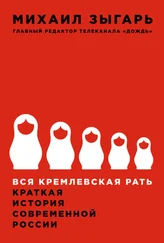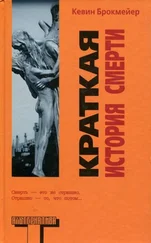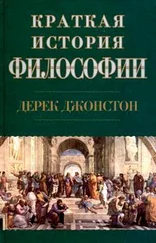R. W. Scribner . Elements of Popular Belief // T. Brady, H. Oberman and J. Tracey (eds.). Handbook of European History 1400–1600, 2 vols. Leiden: Brill, 1994–1995, vol. 1, p. 237.
Подробное обсуждение см.: B. Lewis. Protestantism, Pragmatism and Popular Religion: A Case Study of Early Modern Ghosts // Newton (ed.). Early Modern Ghosts, p. 85; J. Bath . “In the Divells likeness”, interpretation and confusion in popular ghosts belief // J. Bath and J. Newton (eds.). Early Modern Ghosts. Durham: Centre for Seventeenth-Century Studies, 2002, pp. 70–78; M. Gaskill . Crime and Mentalities in Early Modern England. Cambridge and New York: Cambridge University Press, 2000.
T. Brown . The Fate of the Dead: A Study in Folk-Eschatology in the West Country after the Reformation. Ipswich: D. S. Brewer, 1979, pp. 8, 83.
См., например: Marshall . Beliefs and the Dead; B. Gordon and P. Marshall (eds.). The Place of the Dead: Death and Remembrance in Late Medieval and Early Modern Europe. Cambridge: Cambridge University Press, 2000; P. Marshall . Old Mother Leakey and the Golden Chain: Context and Meaning in an Early Stuart Haunting // J. Bath and J. Newton (eds.). Early Modern Ghosts. Durham: Centre for Seventeenth-Century Studies, 2002, pp. 93–109; P. Marshall . Deceptive Appearances: Ghosts and Reformers in Elizabethan and Jacobean England // H. Parish and W. G. Naphy (eds.). Religion and Superstition in Reformation Europe. Manchester: Manchester University Press, 2002, pp. 188–209; P. Marshall . Mother Leakey and the Bishop: A Ghost Story. Oxford: Oxford University Press, 2009; P. Marshall . Transformations of the Ghost Story in Post-Reformation England // H. Conrad-O’Briain and J. A. Stevens (eds.). The Ghost Story from the Middle Ages to the Twentieth Century. Dublin: Four Courts, 2010; K. Edwards . Leonarde’s Ghost: Popular Piety and ‘The Appearance of a Spirit’ in 1628. Kirksville, MO: Truman State University Press, 2008. Обсуждение отношений между духами и чародейством см.: G. Bennett . Ghost and Witch in the Sixteenth and Seventeenth Centuries // Folklore 96 (1986): 3–14; R. Hutton . The English Reformation and the Evidence of Folklore // Past and Present 148 (1995): 89–116; L. Gowing . The Haunting of Susan Lay: Servants and Mistresses in Seventeenth-Century England // Gender and History 14 (2002): 183–201; J. Bossy . Christianity in the West 1400–1700. Oxford: Oxford University Press, 1985, p. 29.
M. Parker . Correspondence of Matthew Parker, Archbishop of Canterbury. J. Bruce (ed.). London: Wipf and Stock, 2005, p. 222; Marshall . Deceptive Appearances, p. 188.
Thomas . Religion and the Decline of Magic, p. 703; D. Cressy . Birth, Marriage and Death. Oxford: Oxford University Press, 1997, p. 403.
L. Lavater . De Spectris (1683); Marshall . Beliefs and the Dead, p. 262.
Старая Матушка Лики (Old Mother Leakey) – дух или привидение умершей в 1634 г. Сьюзен Лики, главы купеческой семьи из Сомерсета, которая после смерти, по преданию, являлась своим дочери и племяннице, а также топила корабли. См.: Marshall Peter . Mother Leakey and the Bishop: A Ghost’s Story. Oxford. Oxford University Press, 2007.
Marshall . Beliefs and the Dead, p. 260.
Marshall . Deceptive Appearances, p. 189; Marshall . Mother Leakey and the Bishop; S. Clark . Thinking with Demons: The Idea of Witchcraft in Early Modern Europe. Oxford: Oxford University Press, 1997; Clark . Vanities of the Eye; C. Lehrich . The Language of Demons and Angels: Cornelius Agrippa’s Occult Philosophy. Leiden: Brill, 2003; M. Bailey . Fearful Spirits: The Boundaries of Superstition in Late Medieval Europe. Ithaca, N. Y.: Cornell University Press, 2013; J. Machielsen . Martin Delrio: Demonology and Scholarship in the Counter-Reformation. Oxford: Oxford University Press, 2015; K. Möseneder . Paracelsus und die Bilder: über Glauben, Magie, und Astrologie im Reformationszeitalter. Tübingen: Niemeyer, 2009.
A. Walsham . The Reformation and the Disenchantment of the World Reassessed, p. 527.
A. Walsham. Providence in Early Modern England. Oxford: Oxford University Press, 1999, p. 2; Dixon . The Reformation and Rural Society, pp. 201–202; P. M. Soergel . Miracles and the Protestant Imagination: The Evangelical Wonder Book in Reformation Germany. New York: Oxford University Press, 2012.
Игра слов enchantment (магия, колдовство; очарование) и disentchantment (расколдовывание; разочарование), использованная Максом Вебером для характеристики процесса секуляризации и рационализации европейской мысли раннего Нового времени.
В оригинале использовано слово communion , которое означает как таинство причастия (евхаристию), так и литургическое общение церквей и самые церкви, находящиеся в таком общении; одновременно это обозначение католической обедни (мессы).
Размышления о памяти и увековечении см.: D. W. Cohen . The Combing of History. Chicago: University of Chicago Press, 1994; J. R. Gillis (ed.). Commemorations: The Politics of National Identity. Princeton, NJ: Princeton University Press, 1996; T. A. Howard . Protestant Reformation Approaching 500 // First Things, May 2013.
Цитата из: G. Bernard . The Late Medieval English Church: Vitality and Vulnerability Before the Break with Rome. New Haven, CT: Yale University Press, 2012.
Никто не утверждал, что Реформация была внешним для европейского христианства и мысли явлением. Другое дело, что ее участники считали своих противников еретиками и пособниками дьявола, то есть представителями врагов Божьих.
Сами участники Реформации не сомневались в единстве процесса преобразования Церкви, хотя и относились к нему по-разному – восторженно, равнодушно или резко отрицательно. Одновременно отказ от термина «Реформация» уничтожает, стирает специфику радикального разрыва с традиционным католическим богословием и обрядностью в XVI в., затушевывает становление протестантизма как новой формы христианства. Богословские споры XVI века с правом каждого читать и трактовать Писание с обсуждением догматов о предопределении, оправдании только верой, всеобщем священстве, значении таинств, значении мирской жизни, изменении трактовки природы Бога и отказа от веры в сверхъестественных духов стали решающим поворотом человечества к рациональному светскому свободному мышлению. Эти споры и новшества подготовили почву для научной революции XVII в.
Читать дальше
![Хелен Пэриш Краткая история: Реформация [litres] обложка книги](/books/389963/helen-perish-kratkaya-istoriya-reformaciya-litres-cover.webp)
![Юваль Ной Харари - Sapiens. Краткая история человечества [litres]](/books/34310/yuval-noj-harari-sapiens-kratkaya-istoriya-cheloveche-thumb.webp)




![Джон Херст - Краткая история Европы [litres]](/books/389962/dzhon-herst-kratkaya-istoriya-evropy-litres-thumb.webp)
![Пол Стретерн - Расцвет и падение [Краткая история 10 великих империй] [litres]](/books/390297/pol-stretern-rascvet-i-padenie-kratkaya-istoriya-10-thumb.webp)
![Джон Норвич - Краткая история Франции [litres]](/books/400778/dzhon-norvich-kratkaya-istoriya-francii-litres-thumb.webp)
![Уильям Байнум - Краткая история науки [litres]](/books/412489/uilyam-bajnum-kratkaya-istoriya-nauki-litres-thumb.webp)
![Стивен Хокинг - Краткая история времени. От Большого взрыва до черных дыр [litres]](/books/416997/stiven-hoking-kratkaya-istoriya-vremeni-ot-bolshogo-thumb.webp)
![Мартин Буркхардт - Краткая история цифровизации [litres]](/books/435614/martin-burkhardt-kratkaya-istoriya-cifrovizacii-lit-thumb.webp)
